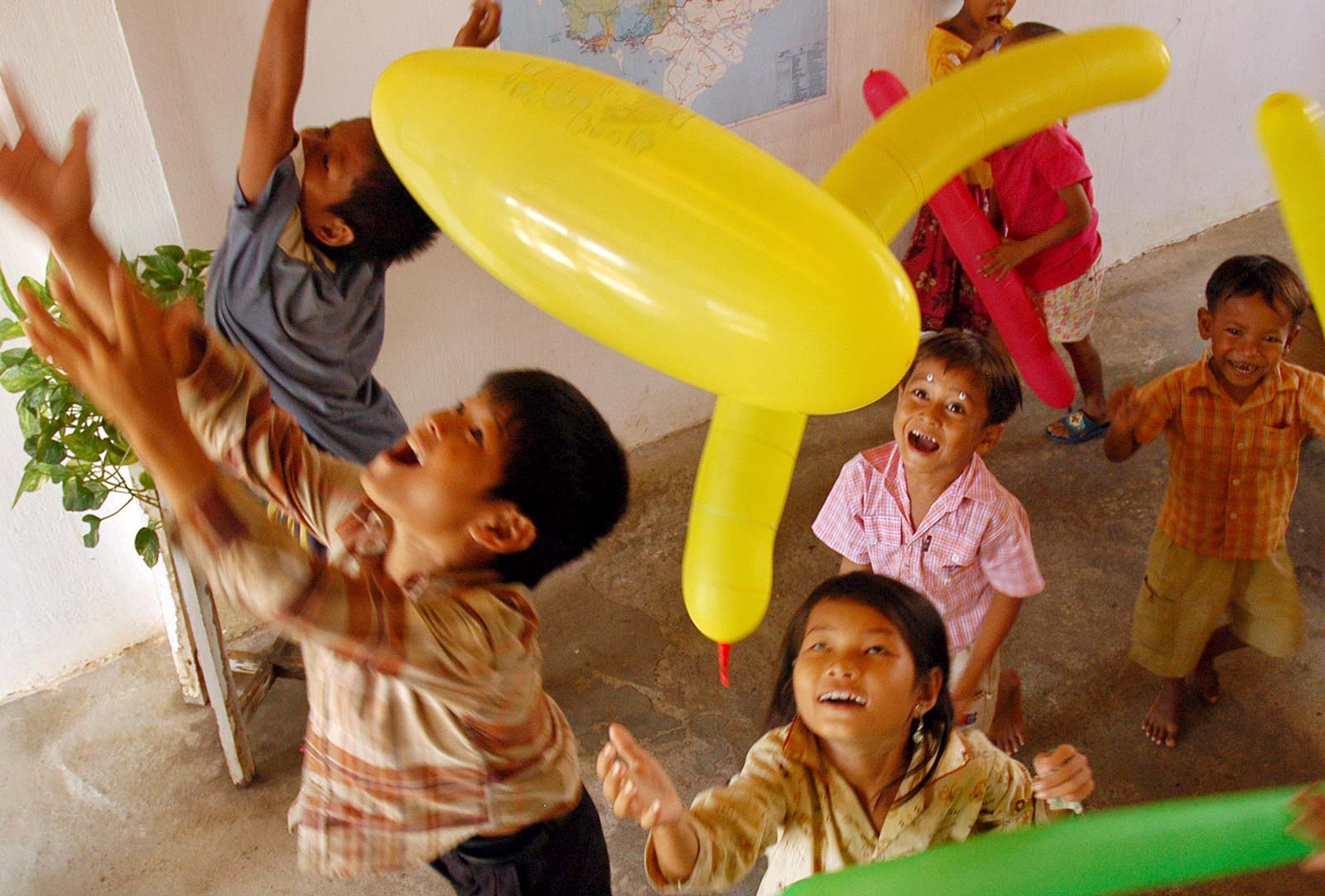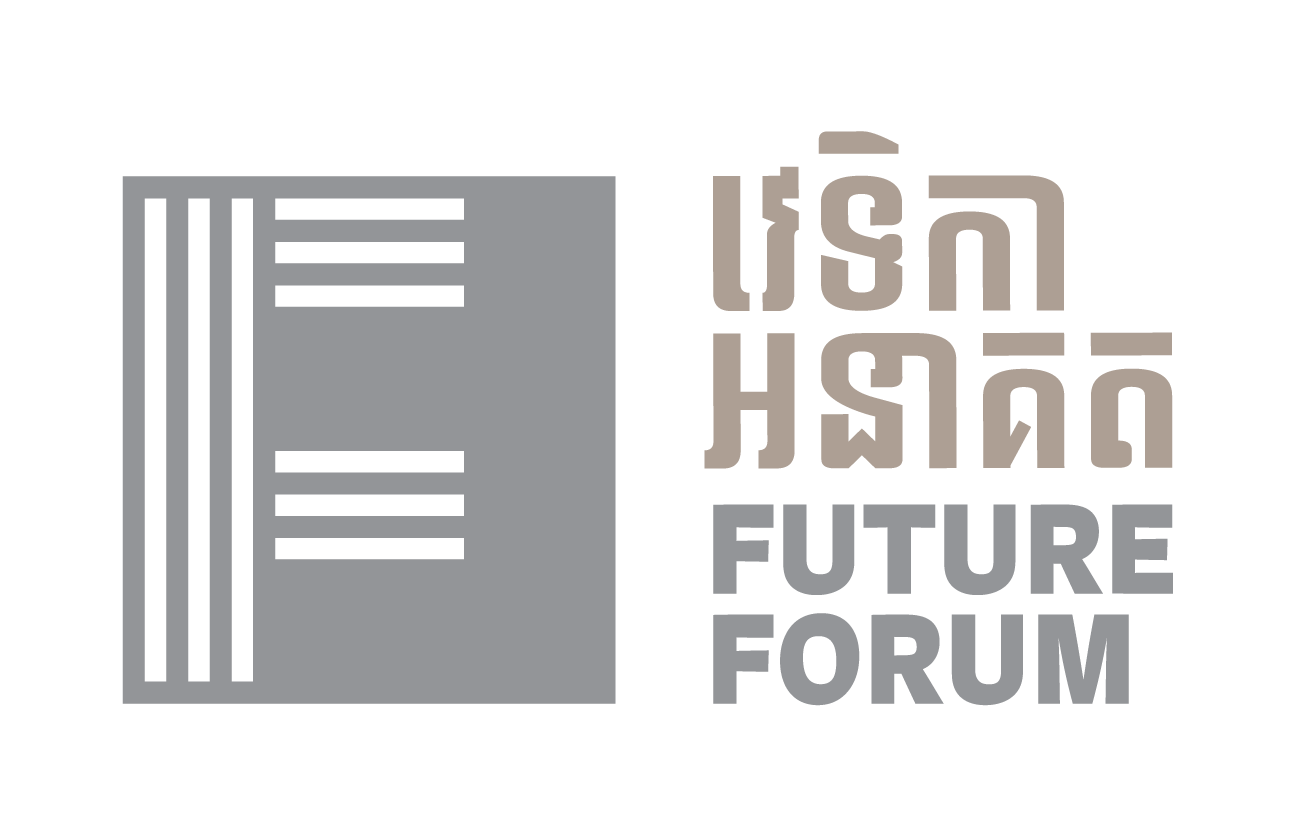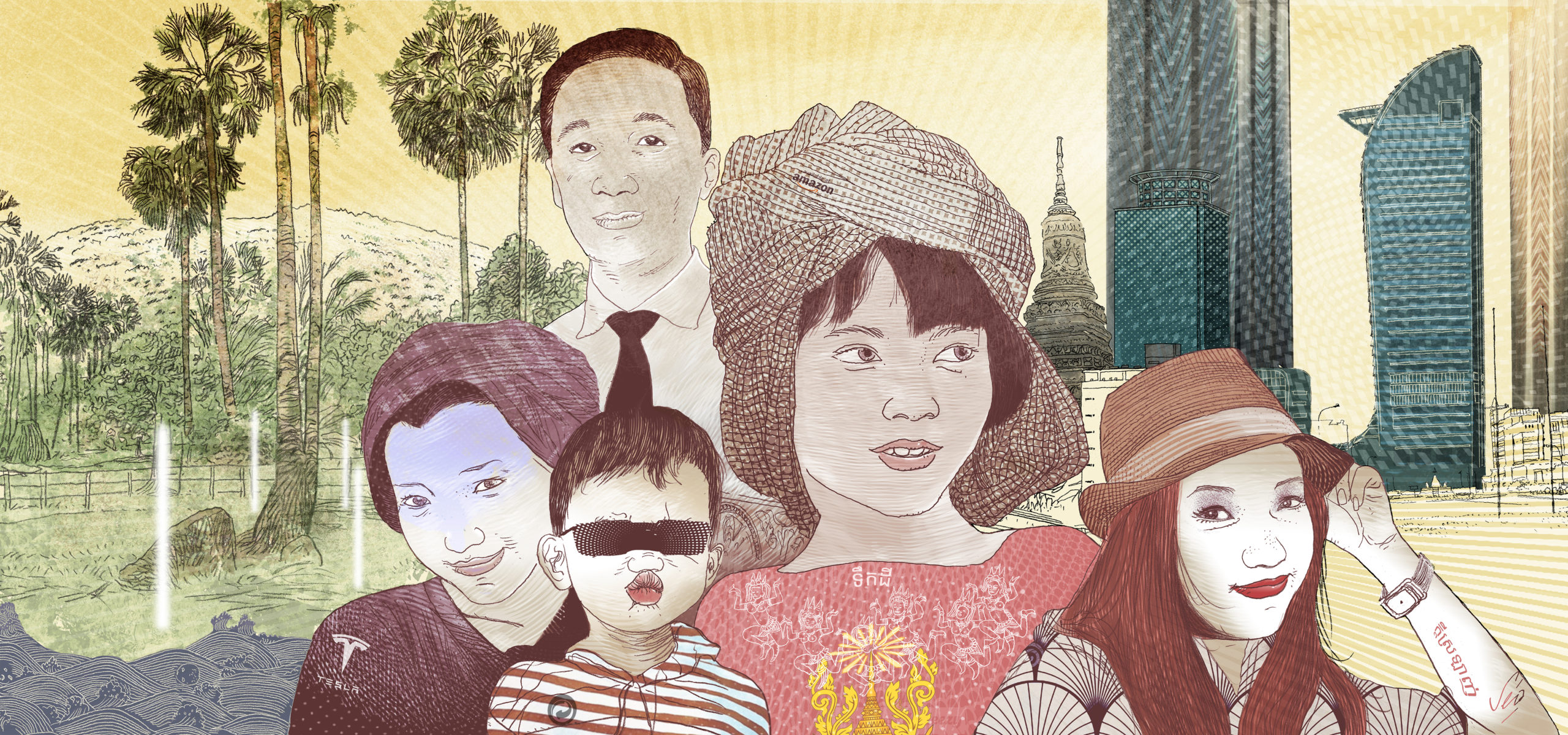Illustration by Séra
A sybil, questioned about Marozia’s fate, said: ‘I see two cities: one of the rat, one of the swallow.’ … I interpret it in this way: Marozia consists of two cities, the rat’s and the swallow’s; both change with time, but their relationship does not change; the second is the one about to free itself from the first
Italo Calvino, Invisible Cities
The year is 2040, and Cambodia is flourishing. From the classroom to the courtroom, from factories to farms, evolving technology has revolutionised the way Cambodians live, eat, work and learn. But tech alone is not enough to bring about a better tomorrow; if Cambodia is to thrive in a fast-changing world, it needs a public who can participate fully in shaping the discussion of how the Kingdom can embrace the full potential of its people.
This is just a glimpse of the shining future imagined for the Kingdom in Cambodia-based think tank Future Forum’s Cambodia 2040 project, a series of essays breaking down the public policy challenges facing the nation – and how Cambodia can chart its own course through the 21st century to a future free from want and desperation.
Over the next eight weeks, Southeast Asia Globe is going to be sitting down with some of the brightest young minds Cambodia has to offer to talk about what the Kingdom could look like in two decades’ time – and the first steps we can take towards that future.
Since the days when the Khmer Empire’s God-kings received tribute from vassal kingdoms across Indochina, the land that would one day become Cambodia has commanded a position of the utmost importance in a region defined by its trade and natural treasures – though not always to the nation’s benefit. Once torn between the encroaching forces of the Thai and Vietnamese armies, then ripped apart beneath the bombs and blindness of the Cold War titans, Cambodia now finds itself once more caught between a waning super power and a powerful rival on the rise.
Faced with a China intent on rebuilding ancient trade routes across Asia and the Near East, Cambodia may seem well-placed to benefit hugely from levels of foreign trade and investment that show little sign of slowing. Despite this, rising fears of a nation reliant wholly on the whims and wellbeing of another may force Cambodia to redefine just how it sees its role in a multi-polar world, as well as what kind of alliances must be forged to ensure it is free to chart its own course in an ever-more-hostile global order.
In two decades, Cambodia’s education system may well look radically different from the one that has shaped every generation since the anti-intellectual fervour of the Khmer Rouge stripped the nation of many of its brightest minds
But while Cambodia’s place in a fast-changing world will always remain to some degree beyond its control, the nation that faces those challenges – and the laws and customs that give it form – is not. The Kingdom has long had a tradition of law and justice, from the absolute military monarchs of old to the generations of scholars and scriptures that guided their hands.
Today, Cambodia’s judicial system has done little to earn admiration within or without its borders. But beyond the whitewashed courtroom walls, rival traditions of community-based justice and conflict resolution have taken root in places the long arm of Cambodian law cannot – or will not – reach.
Here, the Kingdom once again finds itself faced with an opportunity: not merely to strengthen its formal laws and governance against perceived widespread graft and corruption, but to explore more flexible forms of justice that spring not from an edict from on high, but from local communities and the men and women they choose to resolve the conflicts that rise within any thriving society.
But a society can only reach as high as its curiosity. Our love of learning is what drives every innovation, from the technology that connects us across oceans, to the language that we use to share the ideas that drive us. In two decades, Cambodia’s education system may well look radically different from the one that has shaped every generation since the anti-intellectual fervour of the Khmer Rouge stripped the nation of many of its brightest minds. To our grandchildren, the classrooms of today may seem more like prisons than places of learning, brought up instead according to a pedagogy that puts creativity and critical thinking at the centre of a child’s development.

For many of us, our working day has come to define our waking life. From the time we get up to the time we fall asleep, our mind is fixed on finding ways to feed ourselves and our families – and for the more fortunate among us, to find meaning and purpose in that struggle.
We want a different life for our children, one where they are able define the work that they do, and the way that they do it. One where the ongoing march of automation and artificial intelligence doesn’t make working men and women obsolete, but grants them the freedom to match their labour to their love. From the factories to the farms that serve as the twin foundations of Cambodia’s economy, the next 20 years will usher in sweeping changes in technology that will redefine the value we place on the workers who have long carried the country’s development on their backs.
No discussion of mankind’s future is complete without focusing on the unfolding climate crisis. Newly reliant on hydropower and intent on expanding the role of solar and other renewables in meeting its energy needs, Cambodia is one of the nations best placed to shine as an example for others to follow in consigning fossil fuels back to the earth – and most vulnerable to the horrors that will be unleashed if we do not. Building the Kingdom on clean energy, and working with other nations to help hold them to the same high standard, is Cambodia’s only hope to stave off the worst impacts of a climate in collapse.
If any of these hopes and hypotheticals grab your attention, stick around. Over the next eight weeks, we’ll be breaking down the challenges facing every level of Cambodian society – from the classrooms our children learn in, to the farms their food is grown on, and the regional politics shaping their futures.
In 20 years time, Cambodia will be as unrecognisable to us as our present would have been to our parents. Join us every Wednesday for a glimpse of what that future could look like – and what we have to do to make that happen.
This article has been researched and written in partnership with Future Forum, in the lead up to Future Forum’s upcoming Cambodia 2040 book launch. Find out more here.



